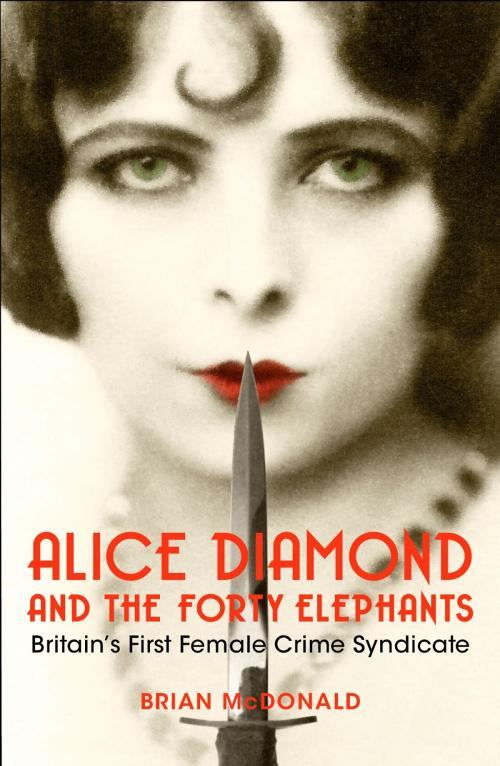Alice Diamond and the Forty Elephants
The Female Gang That Terrorised London
Nonfiction, Social & Cultural Studies, Social Science, Crimes & Criminals, Criminology, True Crime, Biography & Memoir, Historical| Author: | Brian McDonald | ISBN: | 1230002974439 |
| Publisher: | Milo Books Ltd | Publication: | December 4, 2018 |
| Imprint: | Language: | English |
| Author: | Brian McDonald |
| ISBN: | 1230002974439 |
| Publisher: | Milo Books Ltd |
| Publication: | December 4, 2018 |
| Imprint: | |
| Language: | English |
The Forty Elephants were unique in the annals of British crime. Known also as the Forty Thieves, they were the country's only all-female crime syndicate, a gang of tough but glamorous young women who plundered the fashion stores and jewel shops of the West End, took their lovers from the among London's most notorious gangsters, and terrorised their rivals, male and female alike.
Their roots lay with the Elephant Gang, a band of highwaymen who once haunted the Elephant and Castle coaching inn south of the Thames and whose reputation descended through generations of cutthroats. In the dying years of Queen Victoria's reign, their women forged a name of their own under their first prominent leader, the beautiful artists' model Mary Carr, known as Queen Thief.
But it was her successor, Alice Diamond, who led the Elephants to their greatest infamy. Born the oldest of eight children in Lambeth Workhouse Infirmary, Diamond was the daughter of a jailbird and by her teens was said to be the cleverest shoplifter in London. Newspapers described her gang as 'notorious for their good looks, fine stature, and smart clothing' as well as for stealing the most expensive silks, gems and furs. One detective described how they would descend 'like a gang of locusts' in taxis and chauffeur-driven limousines, cleaning out a store inside one hour. They also used the motor-car and train to travel the country, targeting shops and warehouses, wearing specially made skirts and knickers to hide their plunder and spending their ill-gotten gains on a life of mad excess.
Alice was equally adept with her fists, and in 1926 she and her lieutenants were jailed for a major affray. The target for constant police attention, she eventually passed the mantle to her protégé, Shirley Pitts, a pretty young 'hoister' known as the Queen of Shoplifters and who was later buried in a £5,000 dress she forgot to pay for. Crime historian Brian McDonald has uncovered a wealth of material to write the first ever full-length account of these remarkable women and their scandalous exploits.
The Forty Elephants were unique in the annals of British crime. Known also as the Forty Thieves, they were the country's only all-female crime syndicate, a gang of tough but glamorous young women who plundered the fashion stores and jewel shops of the West End, took their lovers from the among London's most notorious gangsters, and terrorised their rivals, male and female alike.
Their roots lay with the Elephant Gang, a band of highwaymen who once haunted the Elephant and Castle coaching inn south of the Thames and whose reputation descended through generations of cutthroats. In the dying years of Queen Victoria's reign, their women forged a name of their own under their first prominent leader, the beautiful artists' model Mary Carr, known as Queen Thief.
But it was her successor, Alice Diamond, who led the Elephants to their greatest infamy. Born the oldest of eight children in Lambeth Workhouse Infirmary, Diamond was the daughter of a jailbird and by her teens was said to be the cleverest shoplifter in London. Newspapers described her gang as 'notorious for their good looks, fine stature, and smart clothing' as well as for stealing the most expensive silks, gems and furs. One detective described how they would descend 'like a gang of locusts' in taxis and chauffeur-driven limousines, cleaning out a store inside one hour. They also used the motor-car and train to travel the country, targeting shops and warehouses, wearing specially made skirts and knickers to hide their plunder and spending their ill-gotten gains on a life of mad excess.
Alice was equally adept with her fists, and in 1926 she and her lieutenants were jailed for a major affray. The target for constant police attention, she eventually passed the mantle to her protégé, Shirley Pitts, a pretty young 'hoister' known as the Queen of Shoplifters and who was later buried in a £5,000 dress she forgot to pay for. Crime historian Brian McDonald has uncovered a wealth of material to write the first ever full-length account of these remarkable women and their scandalous exploits.















